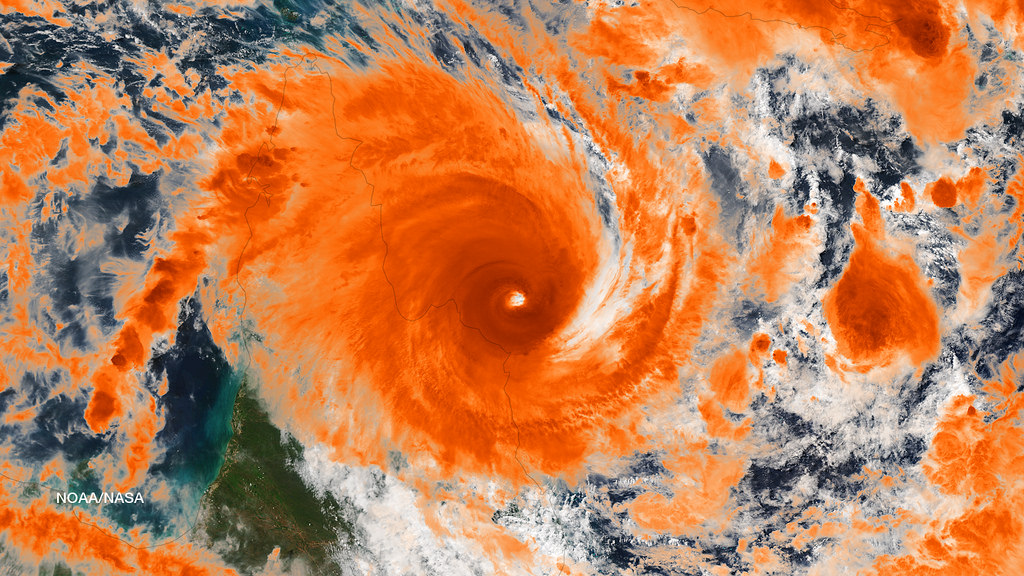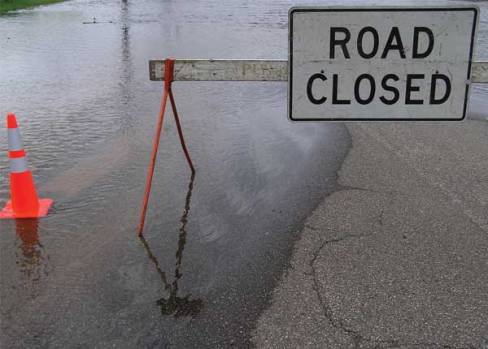
Floated changes to national and state disaster relief funds could land Queensland councils with a massive clean-up bill and delay the restoration of essential services after events such as floods, cyclones and bushfires, a local government conference has heard.
Disaster relief funding was a major talking point at this week’s Local Government Association of Queensland (LGAQ) conference in response to a suggestion earlier this year by the Commonwealth Commission of Audit that federal disaster relief funding be cut from a 75 per cent to 25 per cent and state funding to 25 per cent. This would leave local councils with half the bill.
The Commission of Audit’s comments were contained in a submission to a Productivity Commission inquiry into natural disaster funding, submissions for which closed last week .
LGAQ President Margaret de Wit said if the proposed funding changes went ahead they could leave a shortfall of billions, with councils left to pick up the slack.
“Federal government is there to help out when these sort of disasters happen,” Ms de Wit said.
“Where does it leave councils and where does it leave communities? That’s a big battle that we’re fighting.
“Councils don’t have the money to rebuild places that have been totally destroyed by a cyclone or flood.”
Ms deWit said that if that proposal had been in place before the run of floods and cyclones that began in 2010, councils would have been left out of pocket by more than $1 billion after paying for the clean up and recovery.
Queensland councils argue that disaster funding eligibility guidelines have been progressively tightened over the years so that they have already been hit with extra clean-up costs associated with natural disasters.
They also maintain that these changes have also affected their eligibility to apply for other national disaster relief funding, which is triggered at a particular point.
For example, Counter Disaster Operations (CDO) funding rules no longer help councils cover green waste collection and clearing up parks, gardens and sports fields after a disaster.
Tablelands Regional Council said in its conference submission that it was struggling to meet its current obligations paying for damage caused by natural disasters to parks, sports and recreational facilities, water and sewage infrastructure. It said it could not fund additional disaster management expenses.
“If additional costs were pushed down to the local government level, councils simply would not be able to restore infrastructure in a timely fashion. It would take years for essential public assets to be repaired,” said the submission.
“To impose a multi-million dollar disaster response cost onto local governments would break them.”
Queensland councils are concerned that State Disaster Relief Arrangements (SDRA) are now triggered at a higher level than previously.
Tablelands Regional Council gave the example of a storm at Mount Garnet where one house was flattened and a few businesses damaged. Because a local community service helped the family with housing, furniture, school items the council could not apply for CDO funding to cover the resulting clean-up.
Councils can only apply for CDO if Personal Hardship Assistance Scheme (PHAS) state grants have been given out.
These grants used to be available if a family was struggling in one or more area: food, clothing, medical or housing, but now help from the state is assured only if local service providers have reached their capacity to support families suffering hardship after a disaster.
Councils are also pressing the QLD government to let them use their own workers to repair essential public assets after disaster has struck. Current Commonwealth funding arrangements force councils to bring in external contractors.
Rural and remote councils have argued that they sometimes have problems generating interest from contractors to tender for work and that their own workers are less expensive and understand local conditions. As the largest employer in many communities, councils would naturally rather employ local workers and keep expertise within their communities.
Croydon Shire Council said the current ban on councils using their day labour force caused critical problems for small, isolated local governments.
“Ultimately this would lead to devastation of the small community when employees (and their families) leave due to lack of work opportunities.”
The Productivity Commission Inquiry into Natural Disaster Funding will examine current national natural disaster funding arrangements, effective disaster mitigation, community resilience and reducing the impact of disasters on communities.
The Commission’s report to government is due out in December.
Comment below to have your say on this story.
If you have a news story or tip-off, get in touch at editorial@governmentnews.com.au.
Sign up to the Government News newsletter

